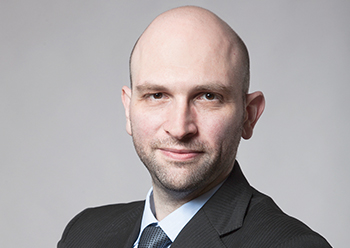Third-party funding, a valuable resource
Players in the construction industry may consider the option of using third-party funding to bring claims that they would otherwise not advance because of the substantial costs involved in arbitration or litigation proceedings, write LAURENCE SHORE and LORENZO MELCHIONDA of BonelliErede*.
01 August 2020
The current pandemic has affected the construction industry worldwide, with the UAE being no exception. Although the construction sector has been in part exempted from lockdown measures, construction companies, owners and real estate developers have suffered from the direct and indirect effects of Covid-19 and the ensuing global economic downturn.
Just to note a few examples, all the players in the construction industry are dealing with disruption in the supply chain, higher labour and safety costs, delays in construction works and late payments. In addition, the value (and profit margins) of some projects might have been reduced, projects put on hold, or cancelled. Many disputes may thus arise among project promoters, contractors and subcontractors.
In this context, third-party funding (TPF) may be very helpful, especially for a party that wants to bring a legal claim but does not have the financial means to endure a long and complex dispute or prefers to allocate its resources to its core business rather than litigation.
 |
|
Melchionda |
In general, TPF is an arrangement whereby a funder, normally a specialised fund, agrees to cover the costs of a litigation or arbitration brought by an unrelated party on a non-recourse basis in exchange for a remuneration calculated as a portion of the awarded amounts – generally 25 per cent to 40 per cent – or three times the amount spent, whichever is greater. A litigation funder normally agrees to fund a claim only after an extensive due diligence on the merits of the case. The terms of each funding agreement are bespoke.
Litigation funding can be used to fund typical construction claims. For instance, in the case of claims for additional payments or damages, the traditional formula described above can work well. Claims for extension of time that do not translate into additional payments require more creative solutions.
Another type of funding structure that may be used in construction disputes is portfolio financing, which is a non-recourse funding facility whereby a funder finances not a single case, but several cases, both existing and not yet extant, as claimant or as respondent, on the basis of a portfolio due diligence. The main advantage of portfolio financing is flexibility, since the funded party is free to use the funds allocated by the funder to finance the cases within the portfolio on an as-needed basis. This form of litigation financing may be particularly suitable for construction companies that are involved in multiple projects that generate claims of different size and type, because it mitigates litigation risk and allows a company to bring claims that it would otherwise not bring.
In the UAE, there is no prohibition against TPF. While the rules applicable in federal courts do not address the issue, the Dubai International Financial Centre (DIFC) and the Abu Dhabi Global Market (ADGM) court systems allow and regulate the use of TPF for litigation in their courts in order to balance the rights and interests of all the parties involved. For instance, the ADGM Court Litigation Funding Rules of 2019 require that TPF agreements address certain issues (for example, the funder’s liability for adverse costs, its involvement in potential settlements, the grounds for termination of the TPF agreement and confidentiality) and regulates conflicts of interests. The DIFC Court Practice Direction on Third Party Funding of 2017 clarifies that the courts may take into account the fact that one party is funded when deciding on applications for security for costs. Both rules mandate disclosure of TPF at the outset and empower the courts to issue cost orders against funders if deemed appropriate in the circumstances. The DIFC Court Practice Direction on Third Party Funding also applies in construction cases heard by the Technology & Construction Division of the DIFC Courts.
As for construction arbitrations seated in the UAE, neither the laws applicable to on-shore and off-shore arbitrations – the UAE Civil Procedure Code and the Federal Arbitration Law of 2018, and the DIFC Arbitration Law and the ADGM Arbitration Regulations, respectively – nor the arbitration rules of the Dubai International Arbitration Centre (DIAC) and DIFC-LCIA, the most frequently used arbitration rules in the UAE, contain any provision prohibiting TPF in arbitration. Considering the positive attitude of the DIFC and the ADGM courts vis-à-vis litigation finance, it is highly likely that TPF is permissible in off-shore arbitrations. There are no significant impediments in the UAE legislation that prevent the use of TPF in on-shore arbitrations. The prohibition of gambling (maisyr and qimâr), excessive speculation (gharar) and interest (riba) under Shariah are generally deemed not applicable to TPF.
In conclusion, the players in the construction industry may consider the option of using TPF in order to bring claims that they would otherwise not advance because of the substantial costs involved in arbitration or litigation proceedings.
* Laurence Shore is Team Leader of the International Arbitration Focus Team and Lorenzo Melchionda is Dubai-based Local Partner and member of the International Arbitration Focus Team of leading Italian law firm BonelliErede, also operating in DIFC and specialising in corporate law, construction, property law and luxury.



